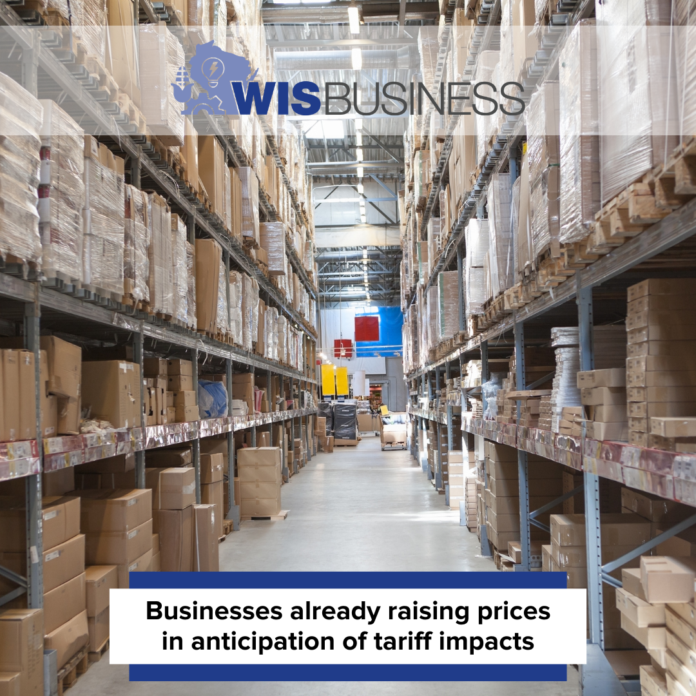Wisconsin businesses have already started raising their prices in anticipation of tariffs driving import costs, experts told an audience in Ripon.
The comments came during a Ripon College Center for Politics and the People panel discussion. Ken Wasylik, managing director of E.M. Wasylik Associates and co-host of the “Talking Trade” podcast, said several of his clients have already begun noticing to major retailers and suppliers that they’re instituting a 90-day price adjustment in response to President Donald Trump’s tariffs.
“So it takes multiple years to find new sources, and so we have clients that are looking for various sources, whether it’s in Mexico or Latin America, or China, Vietnam, Cambodia, Thailand,” he said. “We have clients where their sourcing guys are flying all over the place trying to find new suppliers. But at the end of the day, tariffs will increase the costs.”
Wasylik described it as a “battle going on very much so between suppliers and buyers” as the tariffs take effect, driving prices up. When the prices to produce goods goes up and there are few alternate avenues to reduce those costs, producers are forced to increase prices for consumers and retailers, he added.
“But just like the first time around, when President Trump put the aluminum and steel imports, I had a client that was manufacturer, stainless steel fabricator down in Milwaukee,” he said. “In one year, they raised prices three times, and it was 33% over those three increases. They lost business, yes, but they’re not going to lose money.”
Despite the fact that business have started to increase prices, Sandi Siegel, president of M.E. Dey & Co. and fellow co-host of the podcast, said: “I don’t think we’ve really felt the effect, and I think we’re gonna feel it big in the fourth quarter.”
Most companies stockpiled inventory as the tariffs were being floated at the beginning of the Trump administration, allowing them to avoid the impacts tariffs have on their margins, Siegel said. The pause on tariffs also helped ease the pain, but the pauses and the stockpile only last so long.
“You know, obviously some countries negotiated. In August is when we really realized the increased tariffs on all these IEEPA duties,” she said. “So now is where we’re going to see those real price increases and people making some tough decisions on passing it on.”
The International Emergency Economic Powers Act is what Trump invoked to impose tariffs on goods from several foreign countries. The U.S. Supreme Court is set to hear oral arguments Nov. 5 on whether IEEPA gives the president power to use it to impose tariffs.
Farms of all sizes are taking big hits this year, Wisconsin Farmers Union’s Joshua Mechaelsen also said at the event.
He said farm bankruptcies are up about 95% compared to last year, new equipment sales have been down for about 25 straight months and “the Rural Mainstreet Index is pretty bleak for, kind of, the economical outlook for rural America at large.”
Land prices have also been declining for about 16 months straight, and land equity is what a lot of family farms rely on to stay afloat, he said.
“And so land prices can only go so far down before they’re at risk of bankruptcy and foreclosure,” Mechaelsen said.
Watch the event.







